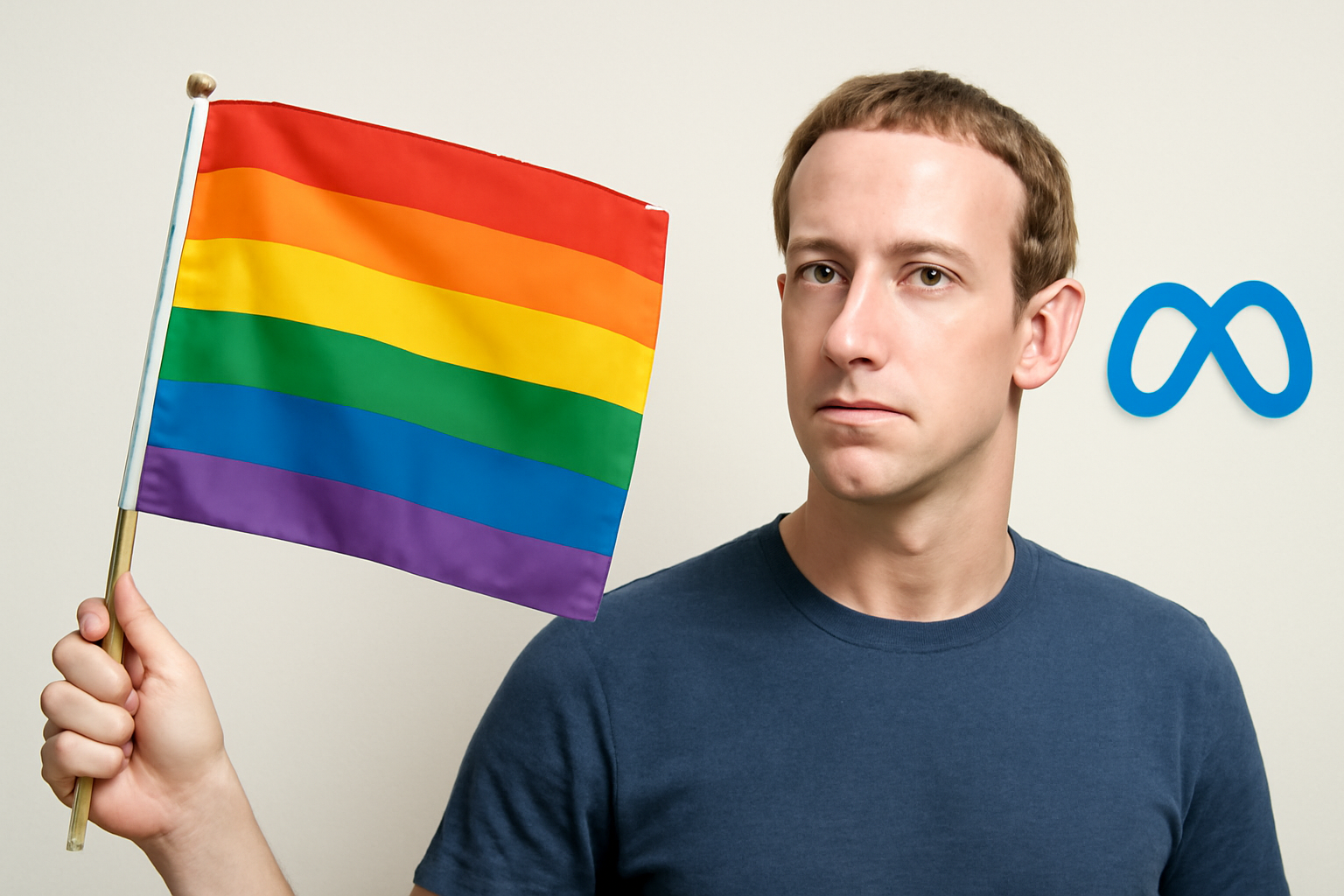
LGBTQ+ Advocates Alarmed by Meta's Recent Policy Changes
In recent weeks, LGBTQ+ advocates have voiced serious concerns over new policy changes implemented by Meta, the parent company of Facebook, Instagram, and WhatsApp. These changes are perceived as undermining protections for queer youth and accommodating a conservative agenda in Washington.
Meta, led by Mark Zuckerberg, has historically been seen as a supporter of LGBTQ+ rights. However, recent actions suggest a shift in this stance. A short-lived Instagram profile named Liv, created as part of Meta's AI experiments, showcased a "proud black Queer momma of 2" but was quickly deleted, sparking online discourse.
Restrictions on LGBTQ+ Content
Independent journalist Taylor Lorenz uncovered that Instagram had been restricting access to LGBTQ+ content for months, blocking teens from searching related terms. This revelation is not surprising to Celia Fisher, a psychology professor at Fordham University, who has dedicated her career to researching adolescent health in marginalized groups.
Fisher explained how social media has been pivotal in reaching a national audience for her research, which uses targeted ads linked to keywords and celebrities to connect with LGBTQ+ youth. The blocking of these keywords presents a significant barrier to recruiting participants and conducting crucial research on mental health, HIV prevention, and vaccine hesitancy.
Such restrictions are not only detrimental to research but also harmful to LGBTQ+ youth. “Preventing access to these terms means youth are cut off from their community, which is particularly devastating for transgender individuals,” Fisher noted.
Meta's Response and Further Policy Changes
When questioned about the restrictions, a Meta spokesperson described them as unintentional mistakes, affirming that LGBTQ+ terms are not considered sensitive under their policies. Nevertheless, Meta's immediate removal of longstanding hate speech policies against LGBTQ+ individuals casts doubt on their commitment.
Mark Zuckerberg announced sweeping changes via a video, where he mentioned eliminating independent fact-checking in favor of a system akin to "community notes," similar to platform X. Critics argue that these changes align with conservative political pressures, especially following the recent election.
The changes quickly drew attention from GLAAD and other organizations, who reported adjustments to policies governing hateful conduct. Notably, certain slurs and derogatory phrases targeting transgender individuals are now permitted without restriction, highlighting a troubling shift in Meta's approach.
Impact on LGBTQ+ and Marginalized Communities
Meta's updated training manuals, as reported by The Intercept, differentiate between different members of the LGBTQ+ community, allowing derogatory language against some while prohibiting it against others. This discrepancy extends to other marginalized groups, further complicating the landscape of online safety and respect.
The removal of Diversity, Equity, and Inclusion (DEI) programs and the deletion of transgender and non-binary themes from Messenger compound these concerns, signaling a retreat from previous commitments to inclusivity.
Arturo Béjar, a former engineering director at Meta and expert in online harassment, expressed his horror at these developments. “Meta is abandoning its responsibility to user safety, and without transparency into the impacts on teenagers, the damage could be profound,” he stated.
Fisher echoed these concerns, emphasizing the potential negative impact on LGBTQ+ youth's mental health. “Experiencing or witnessing harassment online deters individuals from engaging with supportive communities,” she said, highlighting the risk of increased civil rights violations and violence against LGBTQ+ individuals.
Returning to a Dark Era
Fisher, a psychologist, warns that these developments represent a regression to a time when LGBTQ+ individuals were wrongly pathologized. "Spreading misinformation about mental health further endangers transgender people," she emphasized.
The ongoing changes at Meta underscore a worrying trend of prioritizing political expedience over the rights and safety of marginalized communities, prompting urgent calls for accountability and action.
Related Posts
Triumphant Trans Woman Wins Legal Battle and Inspires Others to Stand Up for Their Rights
Breaking new ground: a landmark victory in transgender rights After battling in courtrooms and enduring endless challenges, Diana Portillo, a transgender woman, has secured a monumental victory in her decade-long fight against workplace discrimination. The result? Nearly $1 million awarded in a historic settlement. But this isn't just a win on paper—it represents a powerful precedent in combati [...]
Pride Month in Latin America: Protests and Demands for Equality
**Celebrating Pride and advocating LGBTQ+ rights in Latin America** Pride Month in Latin America was a lively mix where celebration met activism. Communities united, not just throwing a party but making a stand—demanding equality and pushing governments toward better protection and rights recognition. Throughout Latin America, pride events erupted in marches and cultural displays, each with a c [...]
Transgender Erasure Actions Implemented by National Park Service
```html Trump administration's impact on national park service and transgender recognition The Trump administration made notable moves in undermining transgender representation, which included directing agencies like National Park Service not include "T" and "Q" when they refered “LGBTQ” in any official communication. This move seems part a broader plan by this administration aimed at reducin [...]